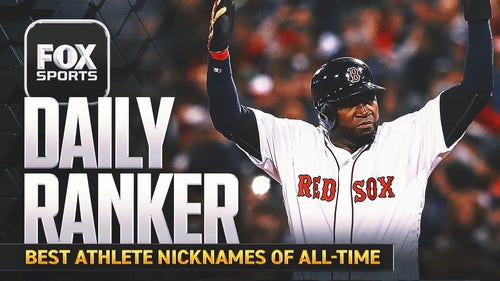
Shootout a popular irritant
For Blue Jackets coach Ken Hitchcock, a man who elevates checking
to performance art, the shootout produces a feeling of
helplessness.
"You are right on edge as a coach when the game goes to
overtime — way more open ice and scoring chances," Hitchcock
said. "When it goes to a shootout, you become an observer, you're
just standing there."
No lines to match, no grinders to employ, no board battles to
win. The shootout celebrates elements of the game —
individual skill, creativity and daring — that coaches such
as Hitchcock rarely accent.
But the man who once famously used defenseman Adam Foote as
his third shooter acknowledges that shootouts are a hit with fans,
an increasingly important part of the game and an area that needs
improving on the Jackets .
"They have become a huge thing," Hitchcock said. "Just look
how many games we've lost this season because of them."
The Jackets have the most shootout losses (eight) in the NHL
and the second-most (31) since the league adopted the tie-breaking
format in 2005.
Hitchcock and his assistants find themselves spending more
time preparing for skills competitions, and Jackets general manager
Scott Howson wonders whether the three-year surge in three-point
games is the direction the league wants to be taking.
Howson is considering a proposal to reduce the points awarded
for overtime and shootout wins to 1 1/2 . He's not sure if he will
broach the subject at the next NHL general managers meeting in
March.
"(The shootout) is a positive development for the fans, and
it increases our entertainment value," Howson said. "But I have
concerns we are seeing more and more three-point games. Is that
where we want to get to as a league?"
Howson says his idea is not related to his team's poor
performance in shootouts. The Jackets are 2-8. Goaltender Steve
Mason is 0-6. Even Mathieu Garon, who set an NHL record by winning
13 straight shootouts, has dropped his past two decisions.
The Jackets have lost 20 of their past 23 games to fall well
off the pace for a playoff spot. During the disastrous stretch, the
Jackets have lost all six games that went to shootouts, robbing
them of points and potential momentum.
"It's a great way to win and a crappy way to lose," Mason
said. "I obviously haven't had the most success in them, so right
now I don't like them. ... It adds insult to injury, especially if
you did not perform well."
Hitchcock said the Jackets need to develop more shooters.
Rick Nash (36.4 percent career conversion rate) and Kristian
Huselius (33.3) have been regulars, but the Jackets don't have a
comfort level beyond those two.
Defenseman Fedor Tyutin is 3 of 7 lifetime and delivered a
memorable goal in Chicago on April 8, 2009, the night the Jackets
clinched their first playoff spot.
But their most recent trip to Chicago on Dec. 1 is more
emblematic of their shootout fortunes. They went 1 of 11 in a 4-3
loss to the Blackhawks that ended with Mason treating his goalie
stick like it was a Pete Townshend guitar.
"We've got to get to the point where we can have a pool of
six players we can draw from," Hitchcock said. "We're not there
yet."
Hitchcock said teams are placing greater emphasis on
shootouts, especially as they become more prevalent. As of Jan. 1,
16 percent of games this season have ended in shootouts, nearly 3
percentage points higher than a year ago.
Teams are trying to match a shooter's strength (a move he
does particularly well) against an opposing goalie's weakness.
Nashville's Jason Arnott has taken just three career attempts, but
coach Barry Trotz used him to beat Garon on Dec. 10 in the
Predators' 4-3 win.
"The preparation for shootouts has become a lot more
detailed," Hitchcock said.
Hitchcock is struck by the unpredictability of the shootout.
It can make heroes out of marginal players and goats out of stars.
Journeyman goaltender Wade Dubielewicz is 5-1 in shootouts,
including a 2007 season-ending win that got the New York Islanders
into the playoffs.
Meanwhile, superstars such as Alex Ovechkin (28 percent) and
Evgeni Malkin (20 percent) have struggled to score.
"Many of the great players are so impulsive and so
instinctive that they might overthink (in shootouts)," Edmonton
Oilers assistant coach Tom Renney said.
For his part, Nash says he enjoys the challenge and loves the
excitement shootouts supply.
"The game ends with everyone on their feet," he said.
Nash thinks Howson's proposal is a decent compromise,
allowing the shootout to remain but rewarding teams that win a game
in regulation. (Some have proposed awarding three points for a
regulation victory).
"Any system where we can reward team play, whether it be
5-on-5 or 4-on-4, over a shootout, I'm for," Florida Panthers coach
Peter DeBoer said. "That's the fabric of our game."
Hitchcock, too, wants winning to be about the team, not
individuals. He favors playing three-on-three before resorting to a
shootout.
But league commissioner Gary Bettman believes fans deserve
the last word.
"It has been overwhelmingly well-received based on the
(feedback) we get," Bettman said. "People are always coming up with
ways to change the game. ... We don't always need to be making
changes."


